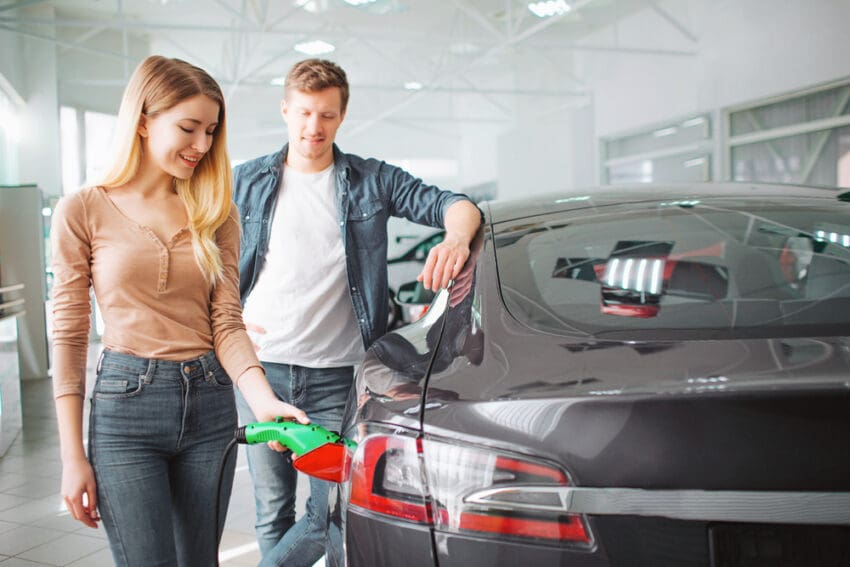EV price overtakes range as buyers’ biggest consideration
Questions over electric car’s battery range have tumbled down the list of concerns for potential buyers, according to new research.
Doubts around the range of EVs were the top consideration for drivers thinking about going electric in 2021 but are now only the fourth biggest factor, according to a study into motorists’ attitudes to EVs.
Price is now the key influencing factor, with almost half of drivers telling the Venson Automotive Solutions Attitudes to Electric Vehicles survey that was their key concern.
EVs are generally more expensive than their petrol or diesel equivalents and despite firms including Vauxhall taking steps to bring down the cost of their electric models, 44% of respondents said cost was their biggest concern – up from 41% in 2021.
Second on buyers’ list of priorities was the availability of a free home wallbox, identified among the biggest issues by 37%, just ahead of charging time (35%). Battery range tied with a car’s safety rating for fourth spot in the list of the 10 key considerations. A third of drivers mentioned as a deciding factor, down from 45% three years ago.
EV’s ranges have increased substantially in recent years, with many cars now capable of well over 300 miles on a single charge, helping alleviate range anxiety among drivers.
Simon Staton, client management director at Venson Automotive Solutions, commented: “SMMT data shows that sales of new and used EVs are soaring, with fleets accounting for a huge proportion of new sales.
“It is perhaps unsurprising, given the extended cost of living crisis, that vehicle purchase price and charger installation are such significant considerations for potential EV buyers. With purse strings restricting buying decisions, financial incentives would understandably be gratefully received.
“Whilst businesses are playing a significant role in driving EV adoption, they could potentially propel the number of drivers opting for electric company cars further still by helping drivers fund home charger installation, through monthly salary deductions, loan or perhaps offering as a recruitment or retention incentive as well as ensuring vehicle options include models with the fastest charging times and greatest battery range.”
The survey also found that drivers wanted to see more government incentives to help them switch to an EV. When asked what action the next government could take to encourage take-up of EVs, respondents said financial incentives would bring the greatest benefit (44%), followed by increased investment in public charging points (26%) and more clean air zones in cities (12%).
When it comes to what is changing drivers’ minds about switching to electric, three factors are working together to improve perceptions: improvements in charging infrastructure have increased confidence for 40%, 39% are encouraged by the positive impact EVs are having on reducing emissions and falling prices have helped change the minds of 38%. A wider range of vehicle options and greater confidence in owning and maintaining EVs have also helped for 20% and 19%, respectively.
Simon Stanton continued: “As we look ahead to the ban on new petrol and diesel car sales, and the net zero pledge, it is encouraging to see drivers’ attitudes shifting and confidence increasing. Education on the reality of living and working with an electric car can help encourage drivers to move to electric.”






